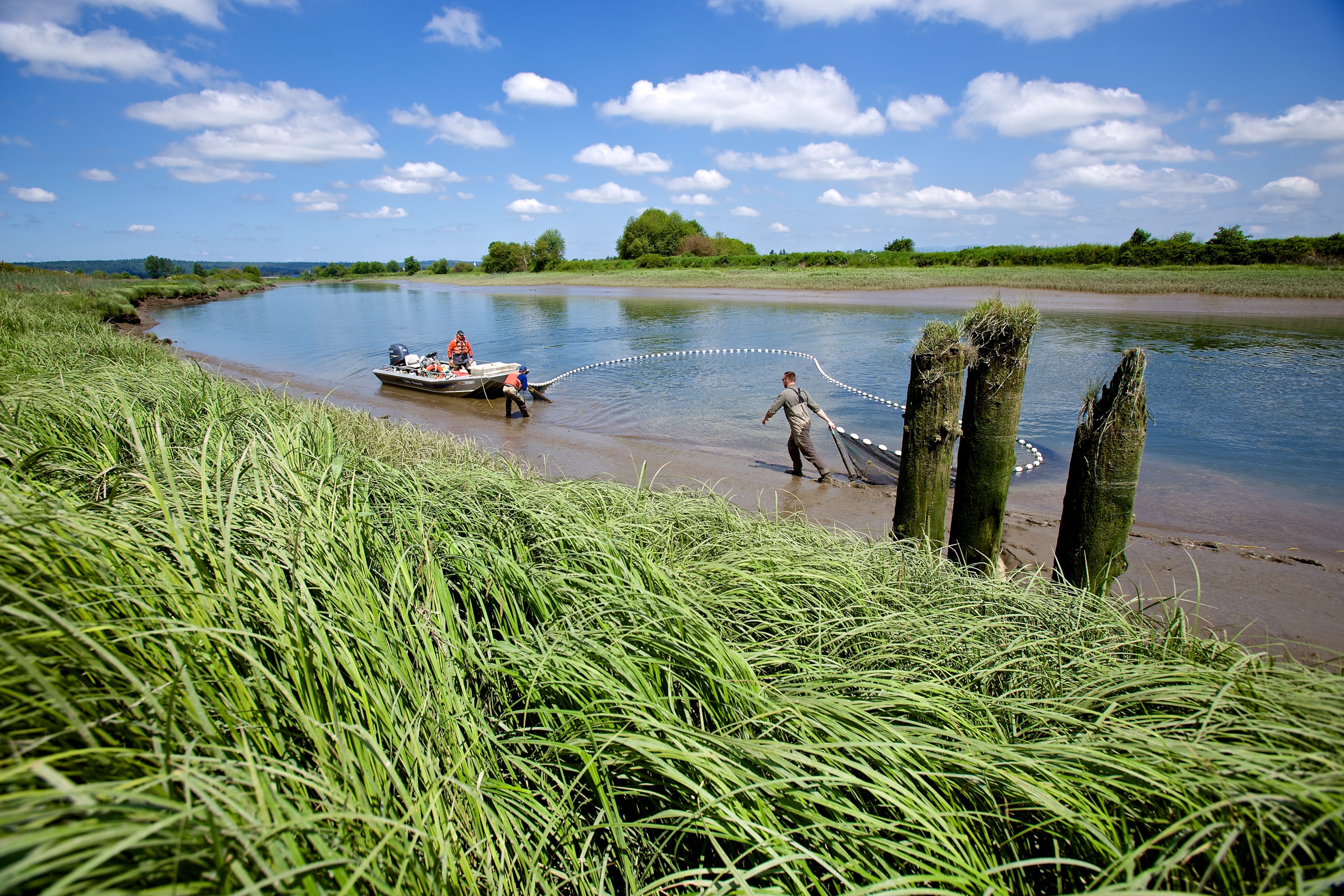Endangered Species Act listed Puget Sound Chinook salmon populations have plummeted by 50% since the mid-80s and steelhead have experienced even steeper declines. Research points to marine survival as the missing link to recovery. The Salish Sea Marine Survival Project, coordinated in part by Long Live the Kings, is a massive international effort to address these drastic declines. The project, now in its third year, has mobilized over 150 scientists, established more than 80 research sites, and created tools for assessing complex, ecosystem-wide impacts that can be replicated in other rapidly urbanizing coastal systems throughout the United States to improve management. Findings, such as US Geological Survey’s work to identify and treat diseases in steelhead, are already being applied to management.
Salmon are valued culturally, economically, and ecologically in Puget Sound. Improving salmon and steelhead populations is necessary to uphold Tribal treaty rights and protect a way of life for tens of thousands of fishers. Chinook salmon are also a critical food source for dwindling killer whales. Without continued support for efforts such as the Salish Sea Marine Survival Project, we risk losing economic assets and defining characteristics of the Pacific Northwest.
Funding Sources:
The Salish Sea Marine Survival Project (SSMSP) is funded by state appropriations, private funds, federal and state competitive grants, and leverages $10 million from our Canadian partners.
Congressional Districts: 2, 6, 7, 9, 10
Partners:
The SSMSP has over 60 partners including state, federal, tribal, private, academic, nonprofit, and international actors.

Long Live the Kings Staff, Joy Lee Waltermire releasing a mature steelhead: Photo by Natasha Dworkin

Scientists collecting valuable data related the Salish Sea Marine Survival Project: Photo by Matt Hagen

